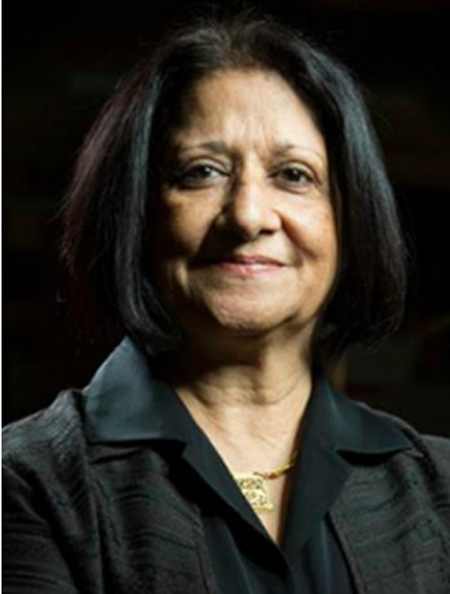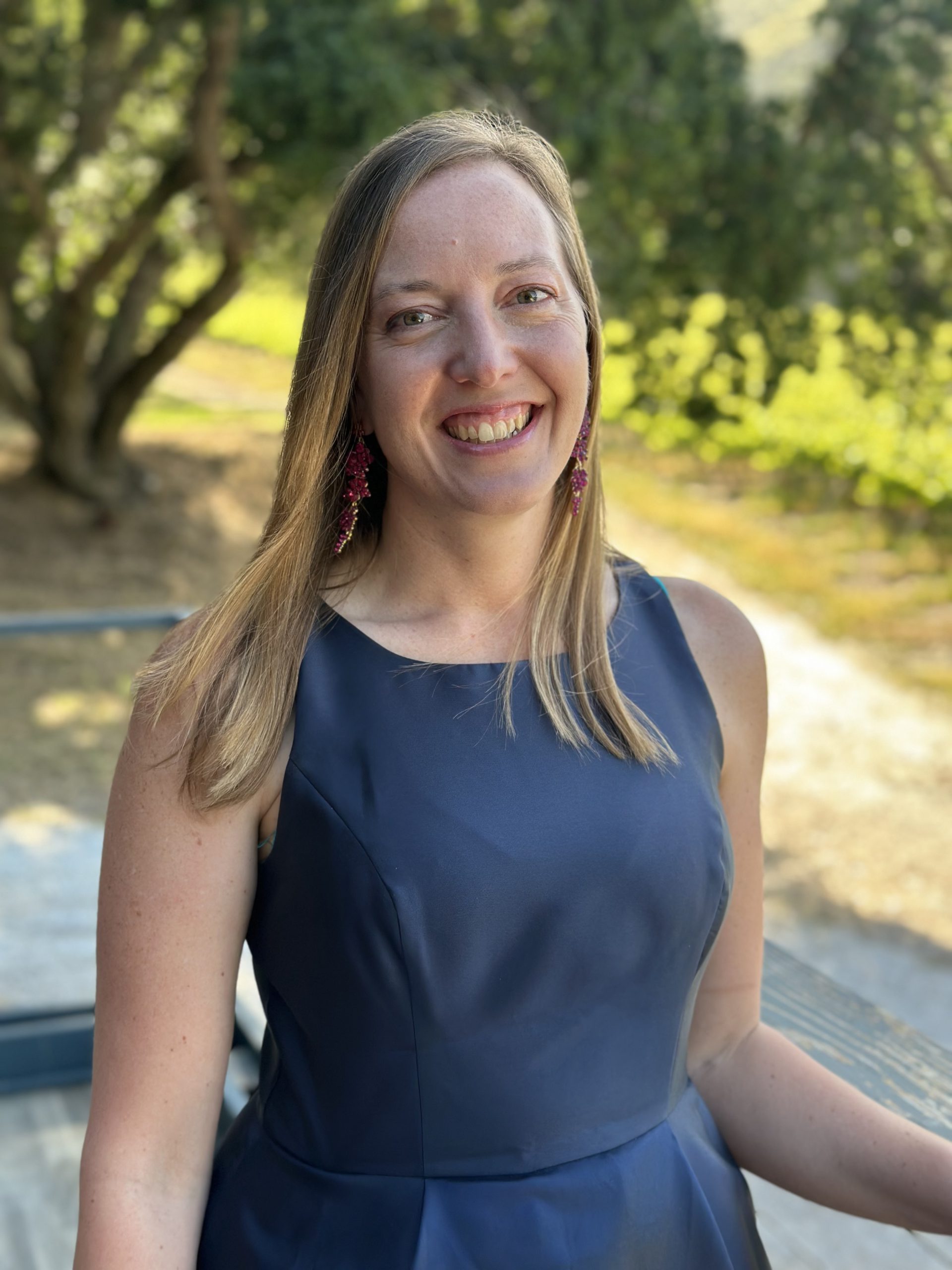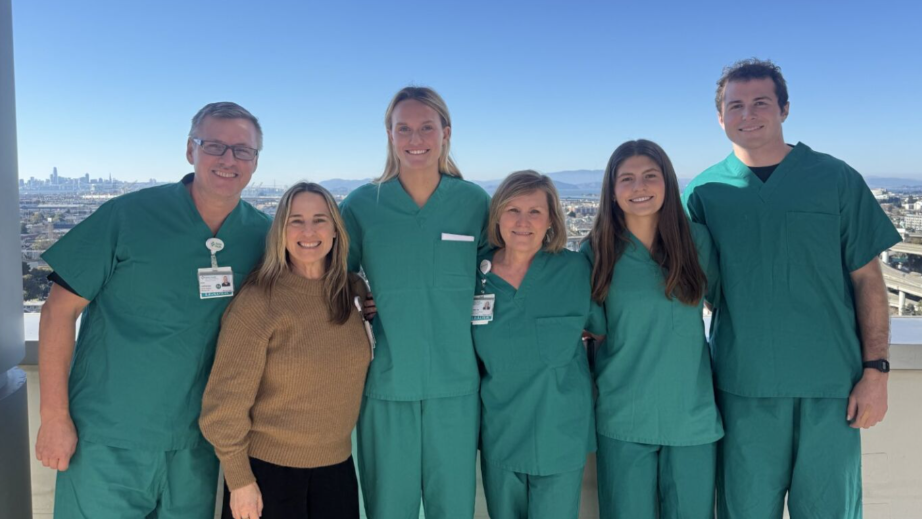Shanaz Dairkee, Ph.D., a senior scientist at Sutter’s California Pacific Medical Center Research Institute (CPMCRI) in San Francisco has been studying the potential link between environmental chemicals and breast cancer since 2005. Now, she and research colleagues have shown in a first-in-kind study that ingredients commonly found in personal care products cause cancer-related changes within healthy human breast cells. Early signs of these changes can be seen in the lab before an individual develops any clinical markers of breast cancer.
What’s in that bottle?
“Manufactured chemicals are found in many consumer products for personal or cosmetic use. Using lab-based models, several studies have attempted to find the link between such environmental chemicals and their harmful cancer-promoting role,” says Dr. Dairkee.

Shanaz Dairkee, Ph.D., is a senior scientist at Sutter’s California Pacific Medical Center Research Institute in San Francisco.
For Dr. Dairkee, a cell and molecular biologist, the new study findings are a key part of a 20-year personal cause to help prevent breast cancer in our communities. “My goal is to uncover the science that could help women make safer choices and reduce their risk of breast cancer.”
Dr. Dairkee and colleague Dr. William Goodson, a breast surgeon and cancer researcher at CPMCRI launched the first lab-based study at CPMC to understand the relationship between chemicals in daily use personal care and cosmetic products and changes in breast cancer genes within breast cells of study participants. The two researchers established the scientific groundwork that led to this study. Their latest findings were published in the journal Chemosphere.
Advancing breast cancer research with community partnerships
The CPMCRI researchers have partnered with a community cancer support group called Breast Cancer Over Time to champion the cause. This California-based nonprofit organization was founded by a group of breast cancer survivors committed to helping reduce women’s risk of the disease.
“Many women are eager to go beyond wearing pink ribbons and directly contribute to scientific research into breast cancer causation and prevention,” says Polly Marshall, executive director of Breast Cancer Over Time. “This study is unique in that breast cancer survivors recruit healthy women who donate normal breast cells for research, with both the survivors and the volunteers learning about whether there may be carcinogenic chemicals found in the cosmetics we use every day.”
The study led by Dr. Dairkee included 40 women aged 18-45 years who did not have a breast cancer diagnosis, and who were routinely using personal care products that contained certain common environmental chemicals. Cells from the participants’ breast tissue were collected and studied in the lab before and after replacement with products free of parabens and phthalates. For 28 days, participants stopped using their chosen personal care products and instead used study-provided chemical-free products.
“Continuous exposure to chemicals like parabens and phthalates causes persistent disturbances in gene activity and consequently in normal cellular behavior that could promote breast cancer occurrence in some individuals,” says Dr. Dairkee. “These chemicals likely ‘disrupt’ the delicate balance of female sex hormone signals in the body, as they are known to mimic natural estrogen. Frequent exposure to these chemicals can increase an individual’s risk of breast cancer.”

Molly Sturtevant, study participant
Eager to help advocate for more research in this field, San Francisco resident Molly Sturtevant joined the study in 2019.
She says, “I participated in this study because I know and love women who have had breast cancer, and I have a young daughter who I want to provide the best for. My participation was incredibly smooth and adjusting to different care products was quick and easy. Some years later, I am still using many of the products I was provided in the study, even without knowing the results of the behavior change. I am so proud to be part of a study that could help me, my loved ones, my friends and my daughter be educated and empowered to make choices that could help reduce our risk of breast cancer.”
For women with breast cancer who take hormone-blocking therapy for the disease, this finding may be particularly important. Continual exposure to estrogen-like chemicals in personal care products may “neutralize” the beneficial effects of hormone-blocking therapy and potentially allow residual cancer cells lurking in the body to grow and spread outside the breast to other tissues in the body.
“This study sets a new benchmark in collaborative science. It also expands routine chemical safety evaluation by designing and implementing human, clinical confirmation,” says Dr. Goodson.
What can women do to reduce risk of exposure to potentially harmful chemicals in personal care products?
Parabens are commonly found in makeup, moisturizers, haircare products and shaving creams. Phthalates are present in many personal care product fragrances and some hair coloring products.
Dr. Dairkee suggests limiting one’s use of products with known estrogenic ingredients. She says ingredient databases such as those compiled by Skin Deep, developed by the Environmental Working Group, serve as a helpful resource. Skin Deep’s free app for smartphones, called Healthy Living, also provides health information on thousands of consumer products and their ingredients.
Finding breast cancer early means everything. Click here for the latest breast cancer screening guidelines.





